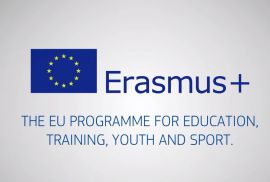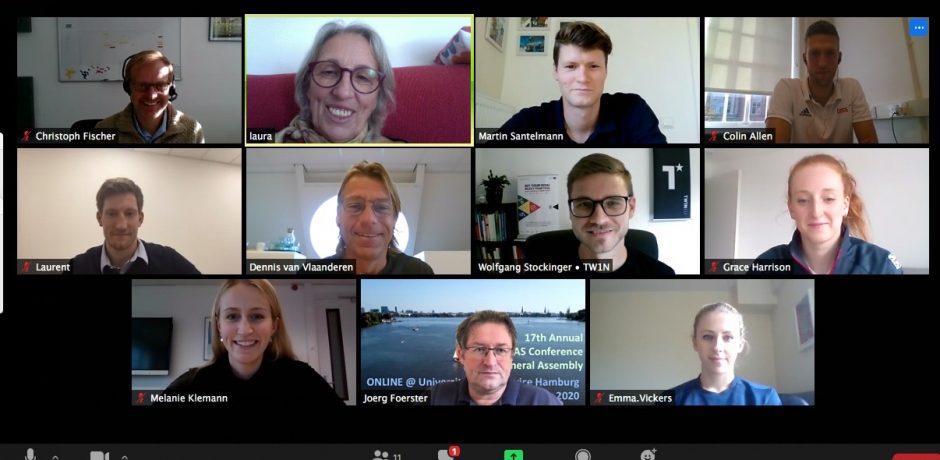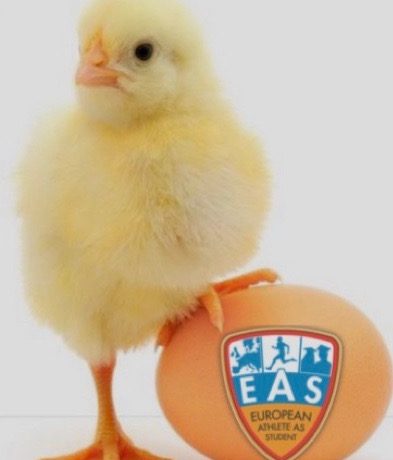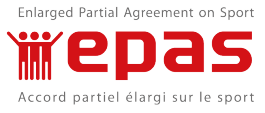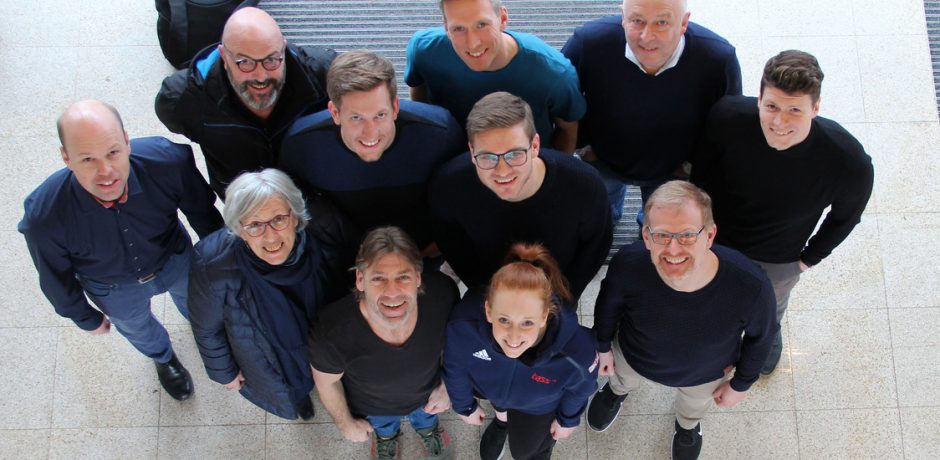Author: admin
EU funded ERASMUS+ SPORT Collaborative Partnerships starting in 2021
On October 20, 2020, EACEA published the results of the selected proposals for ERASMUS+ SPORT to be started on January 1, 2021. Under the EC priority on sports “Promote education in and through sport with special focus on skills development, as well support the implementation of the EU Guidelines on Dual Careers of Athletes” EAS is partner of three Collaborative Partnerships:
BRAVA-DC: Brand Value Alignment through Dual Career, Coordinated by University of Limerick (Ireland) in cooperation with Aarhus Kommune (Denmark), European Platform for Sports and Innovation (Belgium), EUSA Institite (Slovenia), Faculty of Sport and Physical Education, University of Nis (Serbia), Fondazione Human Age (Italy), Università diegli Studi Roma Tre (Italy), Univerza V Ljubljani (Slovenia), and EAS (Malta). The primary focus of BRAVA-DC is on enhancing the European workplace environment so the circumstances and challenges of dual career athletes and coaches can more effectively be accommodated. The BRAVA-DC project aims are: 1) to structure an evidence and eminence knowledge base on dual career for employee-athletes and 2) to define and enable European guidelines which support DC in the workplace and which facilitate appropriate brand alignment strategies and CSR policies which value DC. Accordingly, the overarching aim of the BRAVA-DC project is to implement the EU Guidelines on Dual Careers of Athletes.
EL CAMP: A Self-employment Career Option for Elite Athletes: Innovative Sport-focused Entrepreneurship Bootcamp, coordinated by Collective Innovation AS (Norway) in cooperation with European Paralympic Committee (Austria), Fundacion Universitaria San Antonio (Spain), Hogskolen I Molde (Norway), Lietuvos Sporto Universitetas (Lithuania), Olimpijski Komite Slovenije Zdruzenje Sportnih Zvez (Slovenia). The overall objectives of ELCAMP are to support the implementation of the EU Guidelines Dual Careers of Athletes through the development of a sports-focused entrepreneurship program and to contribute to innovative approaches to sports-focused entrepreneurship through an entrepreneurship bootcamp curriculum, training modules, toolkits and learning, mentoring and networking platform in line with talented, elite and retired athletes needs and expectations.
PARA-LIMITS: Dual Career of Student- Athletes with Disabilities as a Tool for Social Inclusion, coordinated by the Fundacion Universitaria San Antonio (Spain) in cooperation with Collective Innovation AS (Norway), European Paralympic Committee (Austria), Fundacion Once Para la Cooperacione Inclusion Social de Personas (Spain), Instituto Politecnico de Viseu (Portugal), Università degli Studi di Roma Foro Italico (Italy), Universitatea Nationala De Educatie Fizica Si Sport Din Bucuresti (Romania), University of Limerick (Ireland) and EAS (Malta). The main objectives are: to detect the needs and barriers athletes-students with disabilities have in combining their sports and university commitments; to adapt the Dual Career model to elite athletes with disabilities for promoting their social integration and for supporting their transition to the labor market at the end of their sports careers; to create an innovative course for university staff to serve as sports mentors for athletes-students with disabilities.
More information on the selected ERASMUS+ SPORT 2020 proposals iS available at https://eacea.ec.europa.eu/erasmus-plus/selection-results/erasmus-sport-2020_en
The ERASMUS + funded project STARTING11 reaches the next project phase. The meeting started with a review about the last months during which the upcoming testing phase was planned, including the selection of the external stakeholders, the assignment of tools to the testing partners and above all, the development of the guidelines for the upcoming testing phase.
In the main part all project partners were informed about the procedure for the upcoming testing phase. ADH who is responsible for the testing phase planned the next months of testing. Martin Santelmann, Dr. Christoph Fischer and Joerg Foerster, will also monitor the process with the goal of receiving high quality feedback from all testing partners for a good refinement on the very first European Dual Career Toolkit in 2021.

Aiming that each of the involved project partners …
- Amsterdam University of Applied Science (AUAS – Netherlands)
- Athletes as Students Network (EAS – Malta)
- German University Sport Federation (adh – Germany)
- Sportlycee Luxembourg (SplL – Luxembourg)
- Talented Athlete Scholarship Scheme (TASS – England)
…. will test three tools from the different areas “Manage”, “Train” and “Counsel” in its own operation, supervise at least one external and two internal stakheolders from their own country.

Indeed, 2020 required all of us to adopt measures to prevent and to contain the COVID-19 pandemic. While physical distance is needed, we will keep staying connected. Thus, for the first time, the EAS General Assembly and Conference are now transformed into a virtual event hosted by the University of Hamburg (Germany).
To meet the dual-career excellence attendees, expect, the online EAS program includes keynote speakers and sessions with interactive Q&A sessions and two workshops.
At the heart of our online program is the cutting-edge information in the European achievements and future activities, and the experiences of EU-funded projects on dual career. Thus, the program will provide various views and approaches that will encourage key dual career actions, policies, and research contributing to the development of the European dual career discourse.
Your online EAS Conference pass will give you exclusive access to:
- Annual General Assembly
- All keynote presentations, sessions, and workshops
- Post-Conference access to presentations
Therefore, the 2020 EAS conference will remain the privileged occasion for the interchange of ideas and stay current in the European dual career field and networking!
We are here for the benefit of athletes as students, and we look forward to seeing you online on September 17, 2020.
Sincerely,
Laura Capranica, President
Dear EAS Members and Friends, the EAS Executive Committee wishes you a healthy 2020 Easter!
Indeed, the COVID-19 pandemic is strongly affecting our life, causing a great distress or other unforeseen situations.
This is the time to give!
In being aware that any support could make a difference and be greatly appreciated, many of us are actively involved in new processes at educational and/or sport levels to sustain the dual career of our youth. Hopefully, these novel approaches to the solution of unexpected difficulties will help us advancing in new directions once this terrible period will be over.
In the past years, this newsletter was intended also to update on the most recent EAS activities and to anticipate future ones. This year, we will limit the information only to recent past, because the situation does not allow us to have a clear picture of the future. Surely, we will keep you informed through our website (www.dualcareer.eu) and by emails.
Recent activities
January 13-14: The 3rd transnational meeting of the Dual Career for Women Athletes (DONA) ERASMUS+Sport Collaborative Partnership programme was held in Modena, Italy to discuss the current status of the recent activities of the project. DONA is coordinated by the Associació Esportiva Carles Vallbona (Spain) and involves the Malta Volleyball Association (Malta), the Scuola di Pallavolo Anderlini Soc. Coop. Sociale SD (Italy), the Associação Aventura com Carisma – Leixoes Sport Club (Portugal), Istres Provence Volleyball (France), the De SportMaatschappij Foundation (Netherlands), the University of Ljubljana (Slovenia), and the European Athlete as Student (EAS) Dual Career Network (Malta).
January 24-25: The activities of EAS have been presented at the International Conference “When the School starts running” organized in Rome (Italy). The Conference was organized in occasion of the 21st Miguel’s Race (the 10-km Miguel’s Race involving around 10,000 participants.
January 30: EAS was present at 7th Erasmus+ Sport InfoDay organized by the European Commission and the Education, Audiovisual and Culture Executive Agency (EACEA) to update on the funding opportunities in sport, which include also cooperation on dual career.
February 6-7: Sport Ireland Institute hosted the meeting of the ERASMUS+Sport Collaborative Partnership EMPATIA in Dublin, Ireland, to finalize the content of the EMPATIA educational programme on dual career parenting. Coordinated by the University of Ljubljana (Slovenia), the EMPATIA team involves the INSEP (France), the University of Rome Foro Italico and the Italian Olympic Committee (Ily), the University of Coimbra and the Ginásio Clube Figueirense (Portugal), the EUSA Institute (Slovenia), the University of Limerick and the Sport Ireland Institute (Ireland), and the European Athlete as Student (EAS) Dual Career Network (Malta).
February 24: The meeting of the Consultative Committee Bureau of the Enlarged Partial Agreement on Sport (EPAS) of the Council of Europe was held in Paris, France to discuss the revised Terms of References and the draft agenda of the plenary meeting of the Consultative Committee. Chaired by Mr Jens Sejer Andersen – PLAY THE GAME, the Bureau includes the Vice Chair Mr Michal Buchel – FIAS, Mr Carlos Cardoso – ENGSO, Ms Paulina Tomczyk – EU Athletes; Ms Annette Wachter – EGLSF; Ms. Laura Capranica – EAS; and Mr Michael TRINKER, EPAS Deputy Executive Secretary.
February 26-28: The transantional meeting of the Starting11 ERASMUS+Sport Collaborative Partnership was held in Luxembourg to plan further development of the European dual career toolkit. Furthermore, the Starting11 platform has been launched (https://starting11.eu), coordinated by the Amsterdam University of Applied Science (Netherlands) in cooperation with the CREPS Toulouse (France), the German University Sport Federation (ADH – Germany), the Sportlycee Luxembourg (SplL – Luxembourg), the Talented Athlete Scholarship Scheme (TASS – England), and the European Athlete as Student (EAS) Dual Career Network (Malta).
The EAS website publicized two editorial activities: The call for contributions for the special issue of Cultura, Ciencia y Deporte, which aims to be a meeting point for research resulting from EU- funded projects withing the ERASMUS+Sport Programme; and the manuscript Career Development and Transition of Athletes: The International Society of Sports Psychology Position Stand Revised by Natalia B. Stambulova, Tatiana V. Ryba and Kristoffer Henriksen.
European Projects
One of the main pillar of EAS is the commitment and support of all the European Collaborative Partnerships focused on dual career. In particular, this is a brief update on the projects where EAS is currently involved:
AMID (590400-EPP-1-2017-1-AT-SPO-SCP) 2018-2020. Coordinated by the University of Salzburg (Austria), the project aims to provide evidence- and eminence-base guidelines on student-athletes who relocate/migrate to pursue their academic and/or sport careers. Despite due to the Covid-19 the transnational meeting scheduled in March 2020 was cancelled, during this final phase of the project the Partners will collaborate to produce recommendations to provide approaches to the stakeholders from sports, politics and education based on the information deriving from a literature review, focus groups, interviews and surveys. Further information is available at www.amid-project.eu.
EMPATIA (590437-EPP-1-2017-1-SI-SPO-SCP) 2018-2020. Coordinated by the University of Ljubljana (Slovenia), the focus is on the roles of parents as supporters of dual careers of their children. The online educational programme is in its final developmental phase and was supposed to be tested next May during dedicated national workshops with the parents. Due to the Covid-19 constraint, possible adjustments will be necessary. Further information is available at www.empatiasport.eu.
DONA (2018-3716/001-001) 2019-2021. Coordinated by the Associació Esportiva Carles Vallbona-AEC (Spain), DONA aims to investigate, develop and test a dual career club-based methodology for enhancing women’s volleyball players. During last months, DONA has smoothly progressed with awareness raising events organized in Granollers, Istres, Modena and Zebbug. The Partners designed and delivered the monitoring structure of the pilot programme and feedback will be collected at the four Partner clubs during the implementation phase.
Ed-Media (2018-2078/001-001) 2019-2020. Coordinated by the University of Kaunas (Lithuania), Ed-Media aims to proactively shape a positive image of athletes as students. At present, the findings of thorough gap, desk, SWOT and PESTEL analyses on dual career carried out in the participating Member States are directing the development of specific recommendations.
More Than Gold (603346-EPP-1-2018-1-LV-SPO-SCP). 2019-2020. Coordinated by the University of Latvia (Latvia), at present MTG is developing dual career guidelines for higher education institutes. Recently, more than 60 European universities provided their opinion on the priority and feasibility of specific recommendations for the development and implementation of dual career.
SportOpensSchool (603266-EPP-1-2018-1-IT-SPO-SCP). 2019-2020. Coordinated by CUS Pavova (Italy), SOS developed an innovative teaching module for physical activity teachers based on three main pillars: health education; fair play education; and development of skills and abilities. The Covid-19 emergency is affecting also the implementation of the project, with the transnational meeting to be held in Portugal to be rearranged.
Starting11 (60313-EPP-1-2018-1-NL-SPO-SCP). 2019-2021. Coordinated by the Amsterdam University of Applied Sciences-AUAS (Netherlands), the project aims to create the very first European Dual Career Toolkit for service providers. After the transnational meeting held in Luxembourg at the end of February, to inform on the advancement of the project activities Starting11 launched its official website www.starting11.eu.
Save the date
April 21, 2020 is the extended deadline for submission of ERASMUS+Sport applications within the Call for proposals 2020. This funding opportunity is addressing dual career among its priorities.
September 17-19, 2020 in Hamburg (Germany) the 17th EAS Conference 2020 will be held next under the organization of the University Sport Service Hamburg. This event is the European dual career knowledge-hub and the best opportunity to disseminate the findings of the EU-funded projects and activities carried out on behalf of athletes as students.
Send a virtual hug to your Dual Career friends during the COVID-19 emergercy
In support of our community dedicated to improving the well-being of athletes as students EAS is actively responding to the COVID-19 emergency. You can fight the COVID-19’s stay-alone-period by sending a “virtual hug” (by e-mail, WhatsApp, social media) to a good friend or a good colleague of yours. This could be a good opportunity to share your commitment in dual career and to engage new members of our Network.
A special thank for the loyalty and commitment of the EAS Executive Committee and the Members of our Network in supporting the advancement of a European dual career culture.
We wish all the best for the health and wellbeing of you and your loved ones. Yours sincerely,
Laura Capranica on behalf of the EAS Executive Committee
Luxembourg has been in the international media in the last few days mainly because of the switch to a free “public transport for everyone”. During the breaks of the three-day meeting of the ERASMUS + funded project STARTING 11, this sustainable decision was always an issue.
The main topic, however, was the further development and specification of the instruments for improving the situation of the dual career in the countries of the European Union.
In several workshops and small groups, the representatives of the seven partner institutions worked, among other things, in the areas of “advice in dual careers”, “framework conditions of dual careers” or “management of dual careers”.
It was exciting to see that the project partners, including the Talented Athlete Scholarship Scheme (TASS) from England, met for the first time after Brexit, which will have no direct impact on the project. Because of a favorable transitional arrangement for the ERASMUS + program, it is possible that the very active partner from Great Britain can work as a full member until the end of the project.
That project unites leading European institutions in dual career research and practice, to create the very first European Dual Career Toolkit. The lead is taken by the Amsterdam University of Applied Science, Partners are:
– Athletes as Students Network (EAS – Malta)
– Creps Toulouse (CREPS – France)
– German University Sport Federation (adh – Germany)
– Sportlycee Luxembourg (SplL – Luxembourg)
– Talented Athlete Scholarship Scheme (TASS – England)
Aim of the project is to develop tailored tools to the specific demand of dual career service providers in the EU member states. Using an integrated approach, STARTING 11 empowers key actors in sport, education and the labour market to provide high quality services to athletes in all stages of their sporting career, reaching from school level to the stage of retirement from sport.
EAS is represented in that project by Prof. Laura Capranica (Foro Italico) and Ole Keldorf (Eliteidraet Scole Aarhus – ESAA).
Call for papers: December 19, 2019. – Deadline: March 1, 2020. Publication: September or December 2020. – Editors: Antonio Sanchez Pato, Miquel Torregrosa and Elena Conde
Researchers have demonstrated the problems in the lives of elite athletes, who dedicate most of their time to training and competitions and have great difficulties in developing their academic career (Brackenridge, 2004; Conzelmann & Nagel, 2003). The adequate reconciliation of the sports career and academic life, allows the athlete to prepare an alternative working life outside the sports world as the withdrawal time approaches (Puig & Vilanova, 2006; Torregrosa et al., 2015; Wylleman et al., 2004).
The sporting withdrawal, as a common and inevitable moment for all elite athletes, occurs at an early age, when the person still has a large part of his life ahead of him, and the absence of a complementary training to the sport, prevents the use of capital sports obtained throughout his career (Puig and Vilanova, 2006).
The concept of dual career (CD) refers to the challenge of reconciling a sports career with studies or work, which is a source of concern for most elite athletes. For this reason, the European Union, in an effort to promote the development of sport in a socially responsible environment (EU Guidelines on the double career of athletes, 2012), considers the improvement of learning and education of athletes, through their university training with the objective of developing their skills and competences outside the world of sport (European Commission, 2007, 2012).
This special issue of Cultura, Ciencia y Deporte, aims to be a meeting point for research projects, the result of projects funded by the European Union with the Erasmus + Sport Program in recent years, which have aimed to promote the good governance in sport and support the implementation of the EU Guidelines in the dual career of athletes. More information here.
References
Brackenridge, C. (2004). Women and children first? Child abuse and child protection in sport. Sport in Society, 7(3), 322- 337.
Conzelmann, A., & Nagel, S. (2003). Professional careers of the German Olympic athletes. International Review for the Sociology of Sport, 38(3), 259- 280.
Danish, S. J., Petitpas, A., & Hale, B. D. (1995). Psychological interventions: A life development model. Sport psychology interventions., 19-38.
De Brandt, K., Wylleman, P., Torregrossa, M., Schipper-Van Veldhoven, N., Minelli, D., Defruyt, S., & De Knop, P. (2018). Exploring the factor structure of the Dual Career Competency Questionnaire for Athletes in European pupil- and student-athletes. International Journal of Sport and Exercise Psychology, 35(S1), 1–18. https://doi.org/10.1080/1612197X.2018.1511619
Defruyt, S., Wylleman, P., Torregrossa, M., Schipper-van Veldhoven, N., Debois, N., Cecić Erpič, S., & De Brandt, K. (2019). The development and initial validation of the dual career competency questionnaire for support providers (DCCQ-SP). International Journal of Sport and Exercise Psychology, 0(0), 1–18. https://doi.org/10.1080/1612197X.2019.1581827
European Commission (2007). White Paper on Sport. Brussels: Directorate General for Education and Culture.
European Commission (2012). EU guidelines on dual careers of athletes: Recommended policy actions in support of dual careers in high-performance sport. Retrieved from http://ec.europa.eu/sport/library/documents/dual-career-guidelines-final_en.pdf
Morris, R., Cartigny, E., Ryba, T. V., Wylleman, P., Henriksen, K., Torregrossa, M., Lindahl, K., & Cecic-Erpic, S. (2020). A Taxonomy of Dual Career Development Environments in Europe. European Sport Management Quarterly. doi: 10.1080/16184742.2020.1725778
Puig, N., & Vilanova, A. (2006). Deportistas olímpicos y estrategias de inserción laboral. Propuesta teórica, método y avance de resultados. Revista internacional de Sociología, 64(44), 63-83.
Sánchez- Pato, A., Calderón, A., Arias-Estero, J. L., García, J. A., Bada, J., Meroño, L., … & Mallia, O. (2016). Diseño y validación del cuestionario de percepción de los estudiantes universitarios-deportistas de alto nivel sobre la carrera dual (ESTPORT). Cultura, Ciencia y Deporte, 11(32), 127-147.
Sánchez, A., García, J. A., Rosique, P. (2018). Modelo de carrera dual para el deportista-estudiante. En A. Sánchez, E. Isidori, J. L. Arias-Estero, & Bada, J. D. (Coords.), Modelo de carrera dual universitario. El caso de los deportistas-estudiantes. Cendea de Cizur: Aranzadi.
Sánchez-Pato, A., Isidori, E., Calderón, A., & Brunton, J. (2017). An innovative European sports tutorship model of the dual career of student-athletes. Guadalupe: UCAM.
Schweiger, G. (2014). What Does a Professional Athlete Deserve? Prolegomena: časopis za filozofiju, 13(1), 5-20.
Torregrosa, M., Ramis, Y., Pallarés, S., Azócar, F., & Selva, C. (2015). Olympic athletes back to retirement: A qualitative longitudinal study. Psychology of Sport and Exercise, 21, 50–56. https://doi.org/10.1016/j.psychsport.2015.03.003
Torregrossa, M., Regüela, S., & Mateos, M. (2020). Career assistance programs. In D. Hackfort & R. J. Schinke (Eds.), The Routledge international encyclopedia of sport and exercise psychology. London: Routledge.
Wylleman, P., Alfermann, D., & Lavallee, D. (2004). Career transitions in sport: European perspectives. Psychology of Sport & Exercise, 5(1), 7- 20.

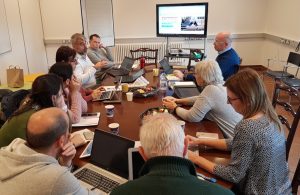
The EMPATIA project is co-funded by the Erasmus+ Programme of the European Union as a Sports Collaborative Partnership. Its aim is to promote and implement dual career, especially targeting parents and guardians of talented and elite athletes who have primary responsibilities in supporting the combination of sport and education careers of their progeny for a holistic development as future European citizens and employees.
For more information on EMPATIA and topic of dual career, please visit the official website, or follow the project on Facebook and Twitter under @EmpatiaSport.

